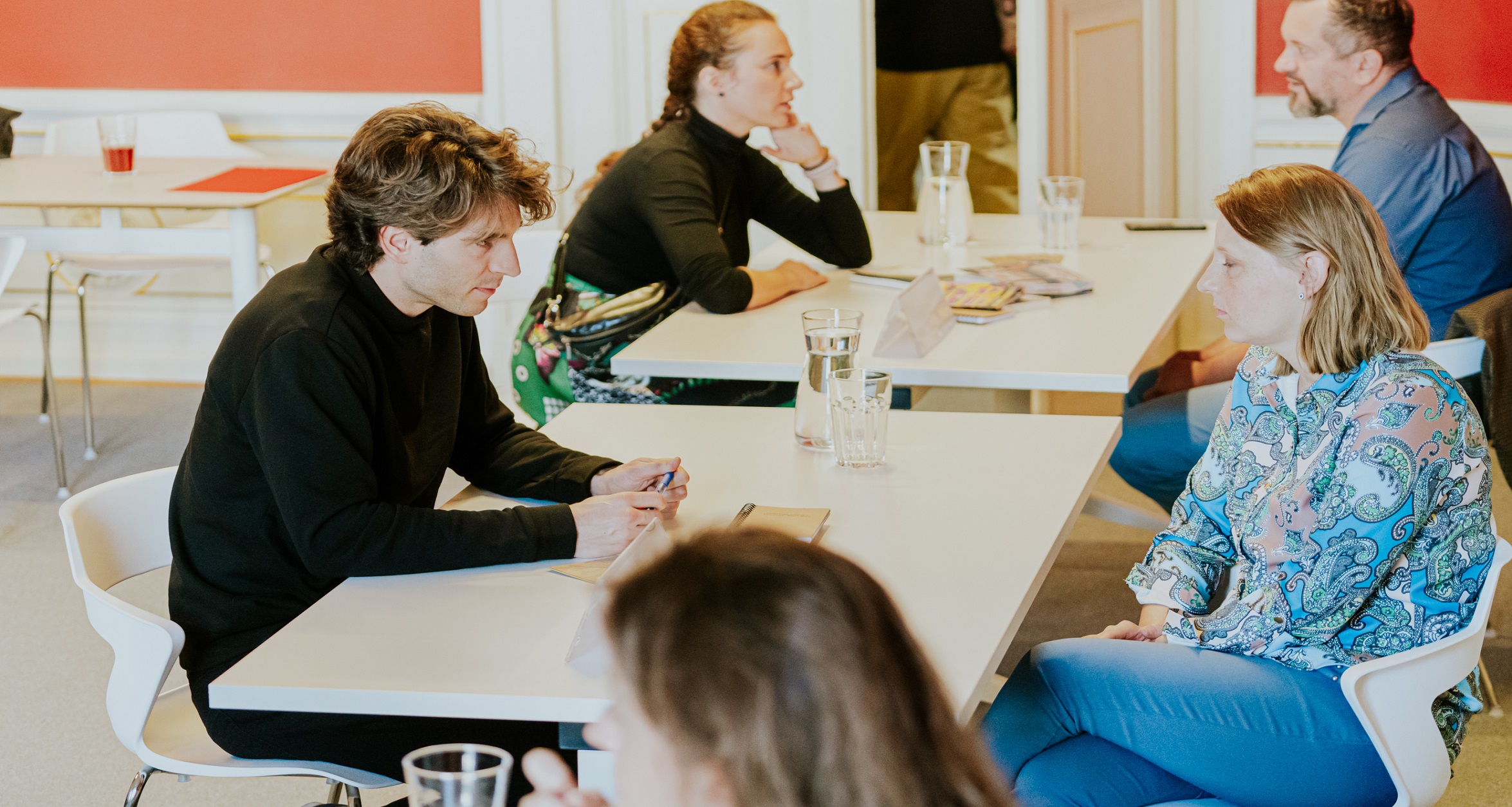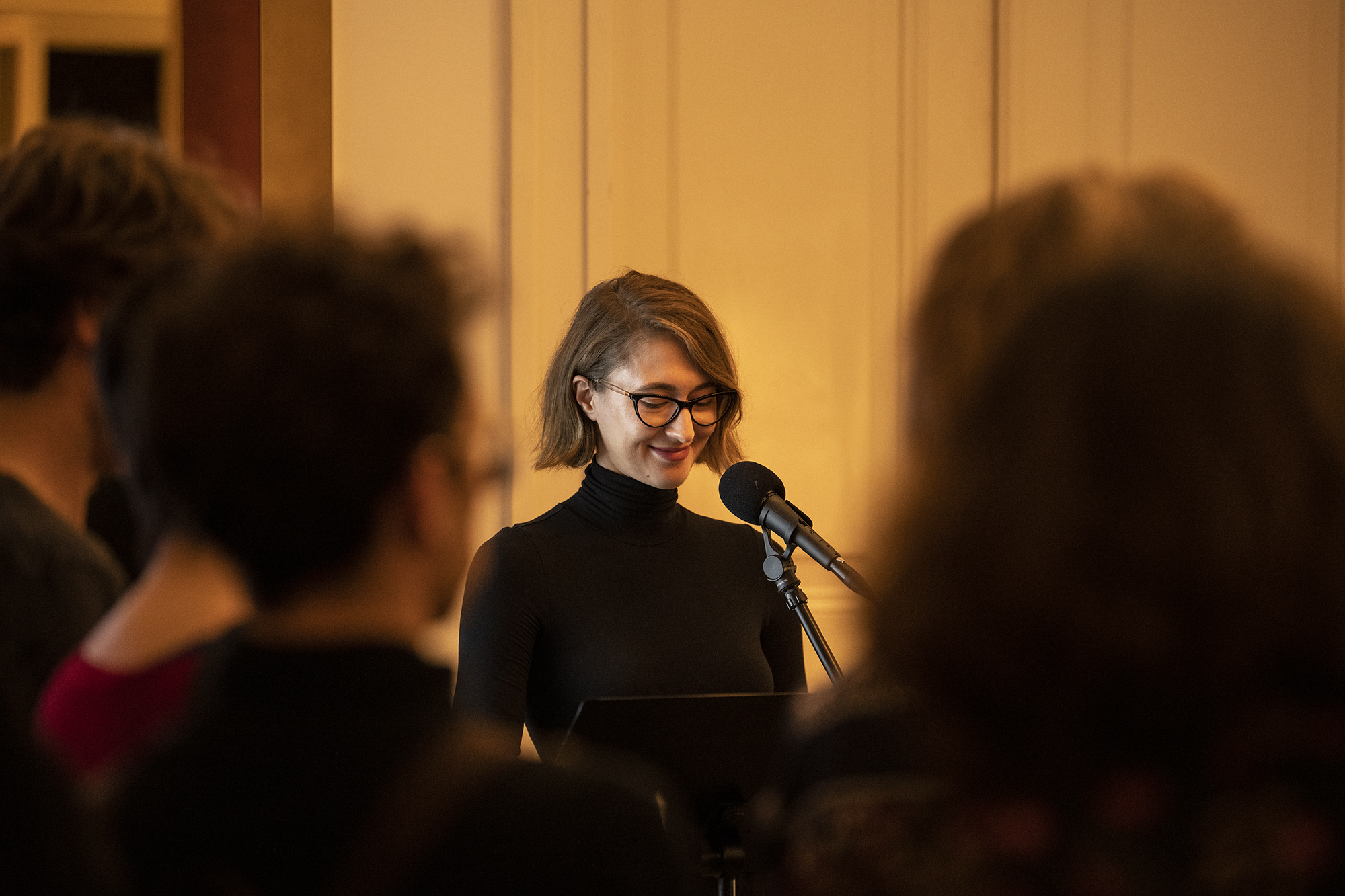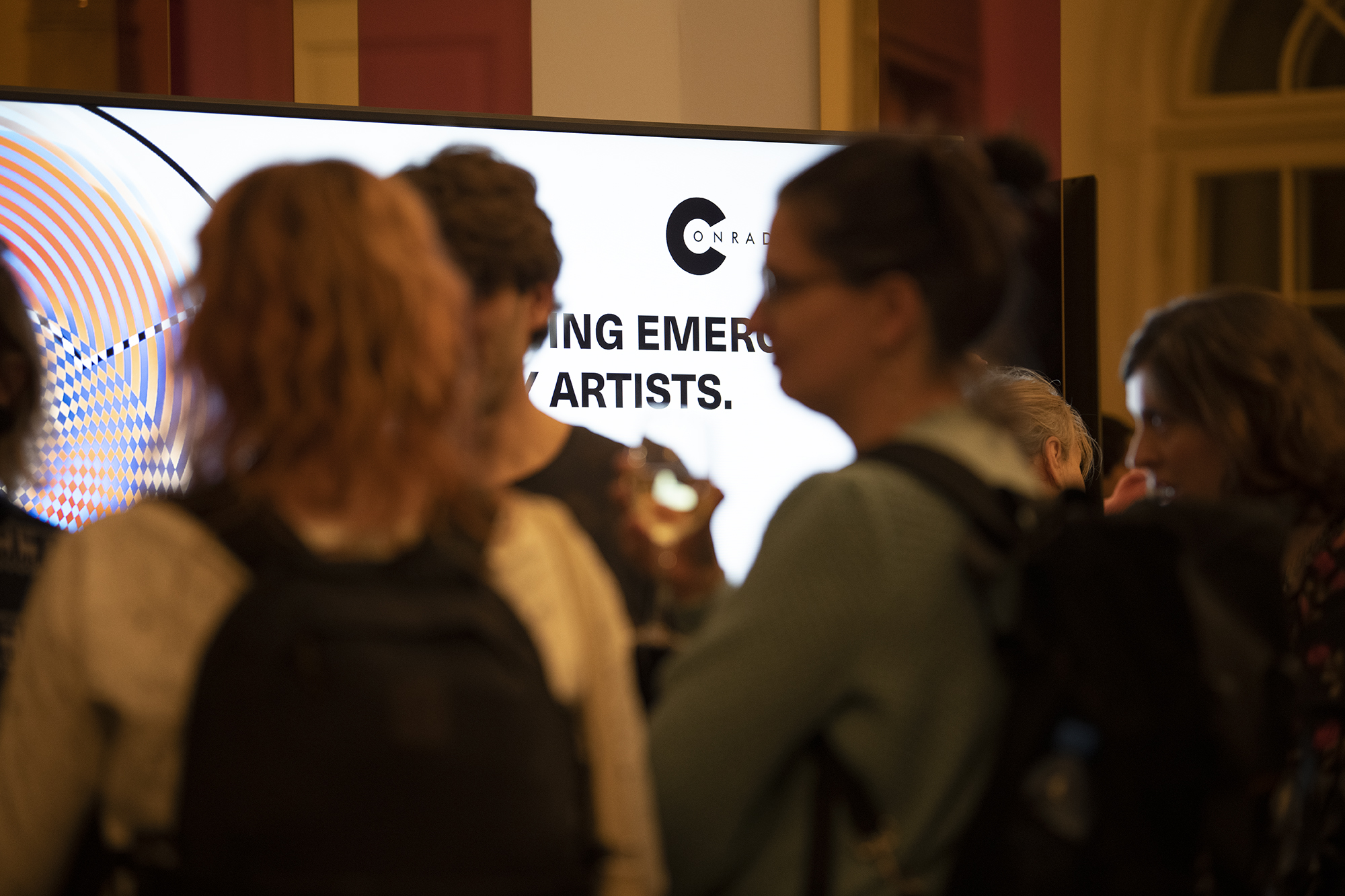Experiences at the Conrad Festival in Krakow - By Nikki Dekker, Writer NL
As the story goes, the beautiful city of Krakow was founded by a wise king called Krakus, who had to protect his entire city from a fearsome dragon who’d taken up his residence in a cave in the Wawel mountain.
This dragon, who once terrified the local villagers, burning their houses to the ground and eating their children, now resides in bronze at the Wawel hill, near the city wall. The statue breathes actual fire, roundabout every five minutes, if not prompted by a text message. This technological addition is pretty recent, but the dragon itself has been standing there, shooting flames from its mouth, for half a century. As a big fan of folklore myths, this is where I start my day, but after that it’s quickly on to the publishers breakfast, where editors, writers, graphic novel publishers and more literary characters have gathered to snack on cake and coffee, shaking hands, taking selfies and generally having a good time.
This is the largest literary festival in Poland, and perhaps of all Central Europe. International authors, the likes of Carmen Maria Machado and Mariana Enriquez are guests here, as well as translators like Gabriel Borowski and Agata Wróbel. Everyone is gathered here to read, to listen to people reading, and to make new connections. The real networking begins afterwards, at the translator-publisher-speed dating event, where every CELA translator gets to meet a host of publishers to quickly pitch their favourite finds to. Writers are not supposed to witness this meeting of the minds, but Olga Niziolek tells me her round went really well, and that it was lovely to meet some new editors.
The Conrad festival takes its name after Joseph Conrad. Most readers will know his classic novel, The Heart of Darkness, but it's not as well known that the author hailed from Poland, and in fact, didn’t even speak a decent amount of English until he was well in his twenties. And while CELA celebrates beautiful literary translations, among ourselves we converse in the shared “bad English”, so this seems suitable. During the festival, moving lights are installed on the tower of the Kościół Mariacki to make it look like a lighthouse. Nautical themes were abundant in Conrad's work, but it seems to have a deeper meaning here as well; it draws its people to the centre square, where most of the literary events take place, in the Potocki Palace.
In the afternoon, people are starting to get nervous; it’s nearly time to perform. The three authors from Czech, Portugal and the Netherlands are gathered with their respective translators, but as a bonus, a musician, Szymon Mika, has been invited to compose new music to introduce and score the texts. It creates a dreamy soundtrack to a variety of performances; very lively, almost theatrical by Anna Háblová and Agata Wróbel, kinetic and physical by Daniela Costa and Gabriel Borowski, and static by Olga Niziolek and Nikki Dekker. Ola, a speech therapist who later confides to house not one, not two, not three, but four cats in her tiny Krakowian apartment, will host the evening with a fitting enthusiasm and charm.
When it’s show time, we’re looking out from the stage into a full room of contented people, drinking wine and enjoying the mixture of languages, laughing out loud at certain passages, and falling sincerely quiet at others. As there’s more to discuss afterwards, everything from menstrual blood to the Grease soundtrack, the drinks continue deep into the night at Piekny Pies (“Beautiful Dog” in English), the intimate bar run by a Polish writer, where, supposedly, the residents of this City of Literature meet and make up their very own dragon myths, for the years to come.


